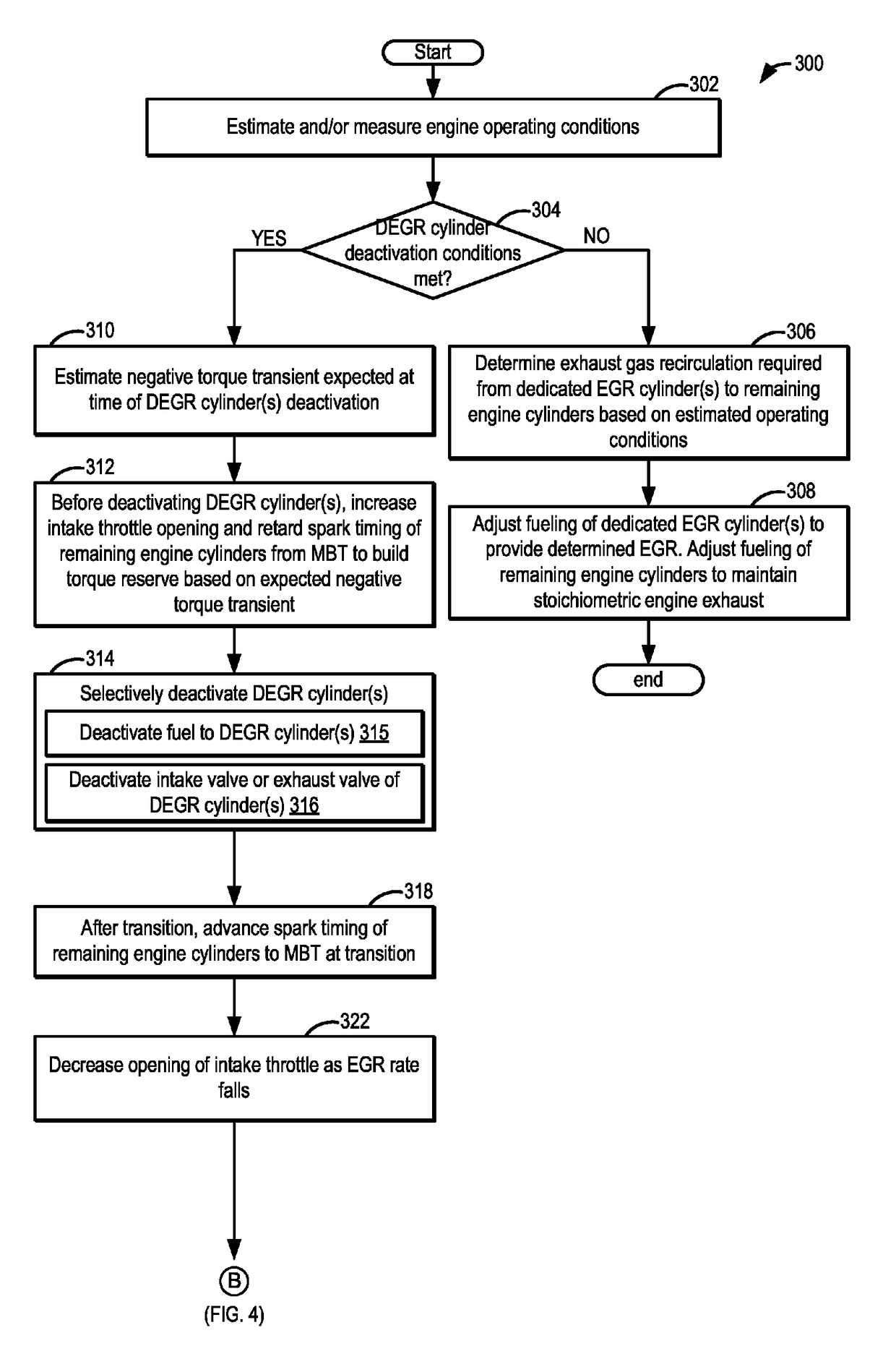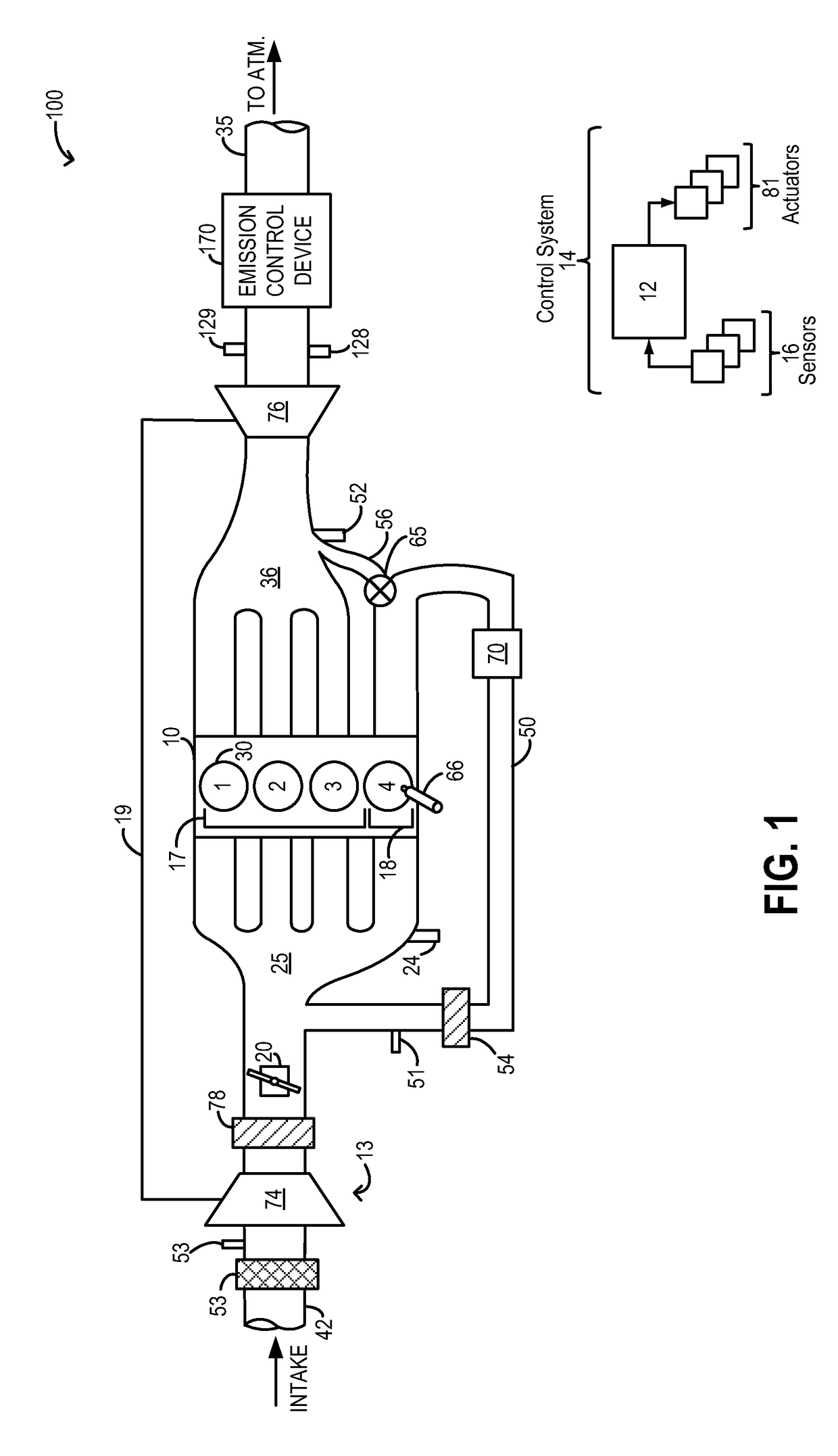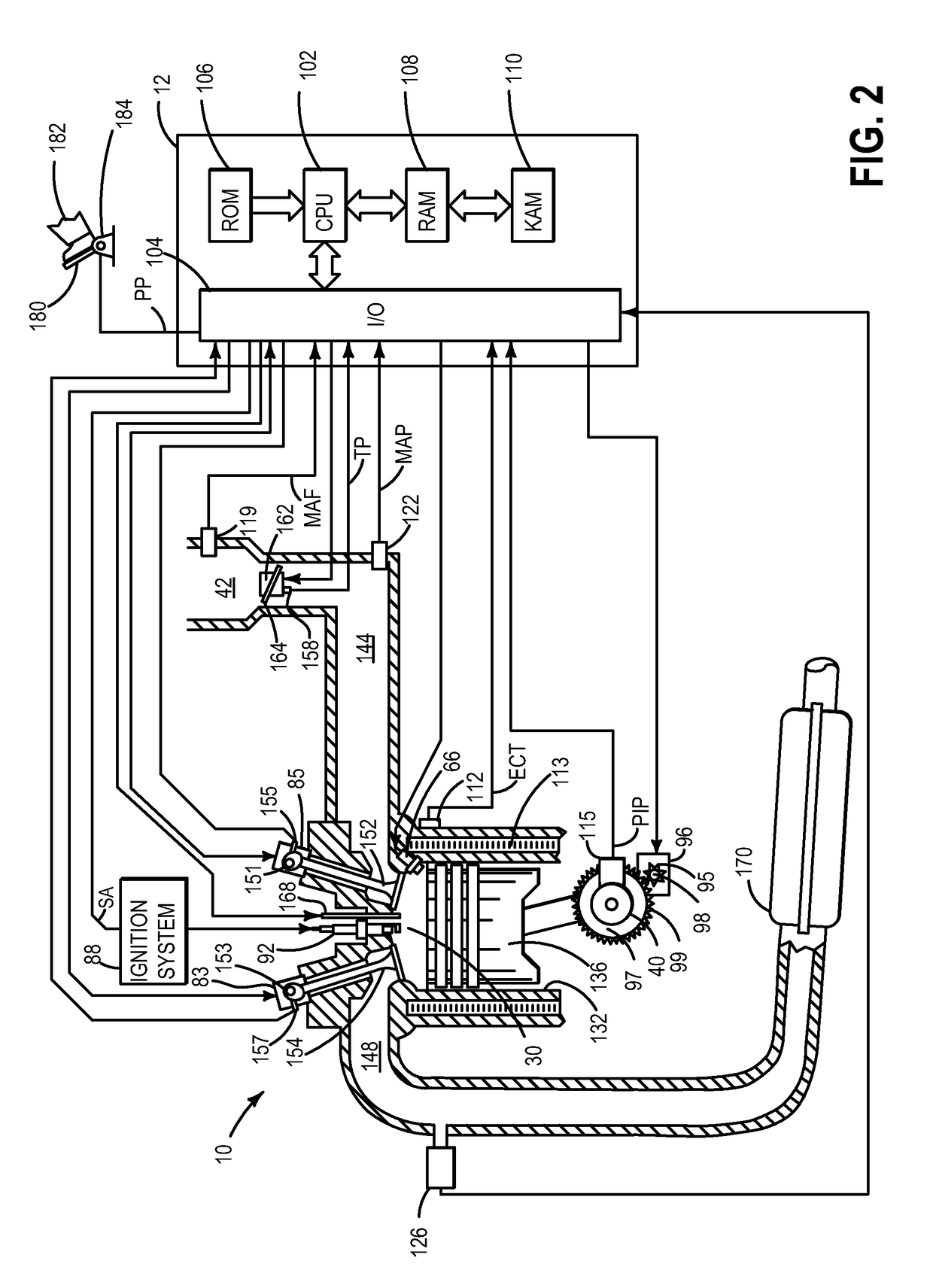Systems and methods for EGR control
a technology of egr control and system, applied in the direction of electric control, ignition automatic control, machines/engines, etc., can solve the problems of torque unevenness, durability issues, and inability to use diverter valves, so as to reduce engine knock, throttling losses, in-cylinder heat losses, and nox emissions. , the effect of reducing engine knock
- Summary
- Abstract
- Description
- Claims
- Application Information
AI Technical Summary
Benefits of technology
Problems solved by technology
Method used
Image
Examples
Embodiment Construction
[0016]The present description is related to EGR flow control on an engine operating with highly diluted cylinder mixtures, such as the engine systems of FIGS. 1-2. The engine cylinder mixtures may be diluted using recirculated exhaust gases (EGR) that are byproducts of combusting air-fuel mixtures. A controller may be configured to perform a control routine, such as the routine of FIGS. 3-4 to adjust fueling of the dedicated EGR cylinder group in response to an increase or decrease in EGR demand. In addition, the controller may adjust one or more engine actuators, such as spark timing and valve timing, while varying the EGR flow from the dedicated EGR cylinder group to reduce torque transients. An example adjustment for torque transient control is shown with reference to FIG. 5.
[0017]FIG. 1 schematically shows aspects an example engine system 100 including an engine 10 with four cylinders (1-4). As elaborated herein, the four cylinders are arranged as a first cylinder group 17 consi...
PUM
 Login to View More
Login to View More Abstract
Description
Claims
Application Information
 Login to View More
Login to View More - R&D
- Intellectual Property
- Life Sciences
- Materials
- Tech Scout
- Unparalleled Data Quality
- Higher Quality Content
- 60% Fewer Hallucinations
Browse by: Latest US Patents, China's latest patents, Technical Efficacy Thesaurus, Application Domain, Technology Topic, Popular Technical Reports.
© 2025 PatSnap. All rights reserved.Legal|Privacy policy|Modern Slavery Act Transparency Statement|Sitemap|About US| Contact US: help@patsnap.com



